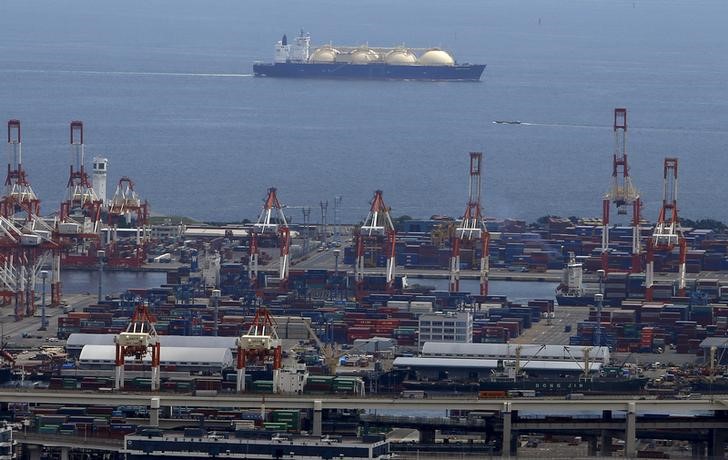(Repeats item issued earlier. The opinions expressed here are those of the author, a columnist for Reuters.)
* Graphic of Australian LNG projects: http://tmsnrt.rs/2jTq9jO
By Clyde Russell
LAUNCESTON, Australia, May 2 (Reuters) - When governments adopt new policies the benchmark for success should be that the change works, is efficient and fair to all parties and does not create unintended consequences.
The decision by the Australian government to restrict exports of natural gas if the domestic market is constrained meets none of these criteria, although it may just persuade an increasingly angry public that the authorities are doing something.
Whether the new policy does serve some short-term political objective shouldn't distract from the view that this is a radical change that will serve mainly to undermine Australia's reputation as an investment destination of choice for the resource sector.
Prime Minister Malcolm Turnbull announced last week that his centre-right Liberal Party government was adopting a policy of intervention in the natural gas market to restrict exports of liquefied natural gas (LNG) if the domestic market was experiencing shortages. move was welcomed by industry groups, which have become increasingly alarmed that domestic natural gas prices have spiked, sometimes to levels above spot Asian LNG prices, while at the same time cheap, long-term contracts have become difficult to source.
The new policy sounds alarming for Australia's emerging status as the world's top supplier of the super-chilled fuel as the country's $200 billion investment in new plants is poised to see it overtake Qatar as the biggest producer.
But the likely impact on the supply of LNG is largely immaterial, as it would only involve relatively small volumes and only at times of peak domestic demand.
Also, the bulk of Australia's 85 million tonnes of LNG capacity will be unaffected as the export restrictions only apply to the three plants on the east coast in Queensland state that use coal seam gas as a feedstock, and not to the conventional facilities in the north and northwest of the country.
It's not exactly clear how the government's planned mechanism will work as this is still to be revealed, but ultimately the aim should be to ensure that domestic users have adequate supply and aren't paying more than the export price.
It's these details that will prove tricky, as industry consultants Wood Mackenzie pointed out in a research note last week.
If the aim is to provide price parity for domestic and export natural gas at the Wallumbilla hub in Queensland, the impact on the LNG plants will be minimal, according to Wood Mackenzie, as the three plants already divert gas to the domestic market in response to price signals.
However, if the aim is to make prices in the southeastern states of New South Wales and Victoria the same as the export price, this implies intervention to lower domestic prices at Wallumbilla in order to compensate for the high costs of moving the natural gas via pipeline to the major domestic consuming markets, Wood Mackenzie said.
IS ANYBODY HAPPY?
No matter what strategy is ultimately adopted, it's unlikely to please any of the participants in the market.
Rather, the various players should face some home truths.
For domestic users, they should realise that as soon as Australia approved LNG projects using coal seam gas it was always going to be the case that domestic prices rose to match export prices.
In fact, it was also likely that domestic prices would exceed the export price given the high cost of transporting fuel from Queensland to New South Wales and Victoria.
The natural gas industry should also accept that it will have to do everything it can to supply the domestic market, even if it means accepting lower prices on occasion.
There is also no point in the industry bleating about the need to increase supply, especially from New South Wales, Victoria and the Northern Territory, all of which restrict or ban exploration and production in some form or another.
It's clear that those state and territory governments have caved in to the environmental and rural lobbies. Yes, the industry can complain that the politicians lack the courage or the will to explain to voters the consequences of restricting supply, but this is unlikely to make them change their minds.
The industry has largely lost the public relations battle with the environmentalists, and politicians from both Australia's major parties see little upside in siding with industry against a well-funded green lobby that is opposed to any form of exploration and production of natural gas.
Rather the industry should shore up its existing assets and relationships with the gas-friendly state governments of South Australia and Queensland.
But the biggest loser is likely to be Australia as a whole. Once your reputation is harmed, it's extremely difficult to get it back.
There is little doubt that government changing the rules in response to domestic political needs is a major risk to companies planning multi-billion dollar investments.
<^^^^^^^^^^^^^^^^^^^^^^^^^^^^^^^^^^^^^^^^^^^^^^^^^^^^^^^^^^^ Australian LNG projects
http://tmsnrt.rs/2jTq9jO
^^^^^^^^^^^^^^^^^^^^^^^^^^^^^^^^^^^^^^^^^^^^^^^^^^^^^^^^^^^> (Editing by Richard Pullin)
